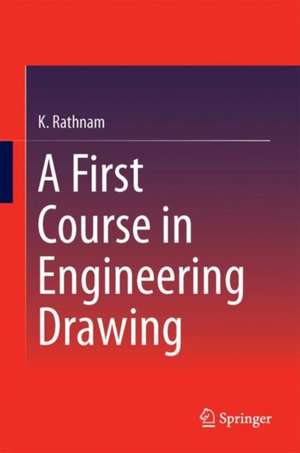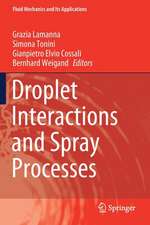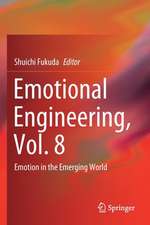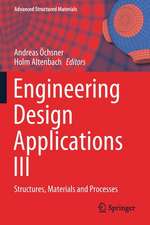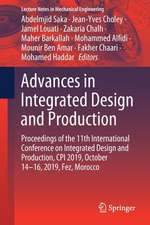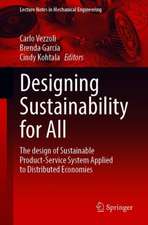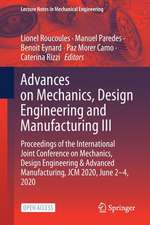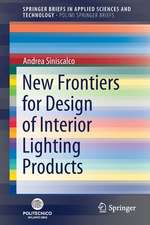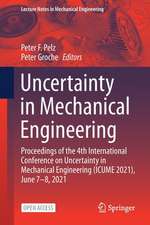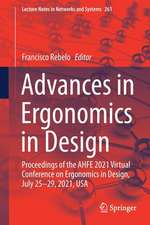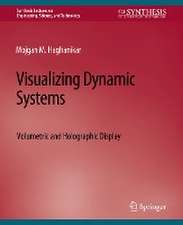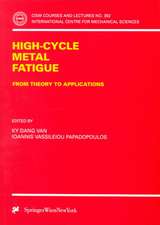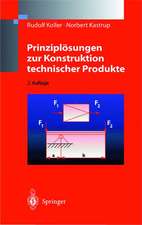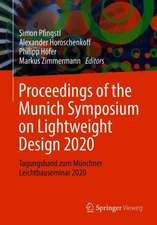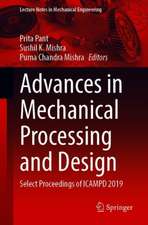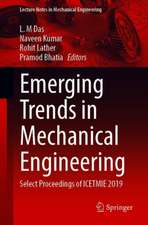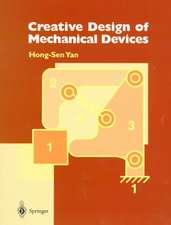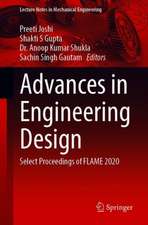A First Course in Engineering Drawing
Autor K. Rathnamen Limba Engleză Hardback – 29 aug 2017
Emphasis is placed on the precise and logical presentation of the concepts and principles that are essential to understanding the subject. The methods presented help students to grasp the fundamentals more easily. In addition, the book highlights essential problem-solving strategies and features both solved examples and multiple-choice questions to test their comprehension.
| Toate formatele și edițiile | Preț | Express |
|---|---|---|
| Paperback (1) | 460.69 lei 43-57 zile | |
| Springer Nature Singapore – 30 ian 2019 | 460.69 lei 43-57 zile | |
| Hardback (1) | 539.09 lei 43-57 zile | |
| Springer Nature Singapore – 29 aug 2017 | 539.09 lei 43-57 zile |
Preț: 539.09 lei
Preț vechi: 634.22 lei
-15% Nou
Puncte Express: 809
Preț estimativ în valută:
103.19€ • 112.12$ • 86.73£
103.19€ • 112.12$ • 86.73£
Carte tipărită la comandă
Livrare economică 21 aprilie-05 mai
Preluare comenzi: 021 569.72.76
Specificații
ISBN-13: 9789811053573
ISBN-10: 981105357X
Pagini: 387
Ilustrații: XIII, 387 p. 475 illus.
Dimensiuni: 155 x 235 x 27 mm
Greutate: 0.74 kg
Ediția:1st ed. 2018
Editura: Springer Nature Singapore
Colecția Springer
Locul publicării:Singapore, Singapore
ISBN-10: 981105357X
Pagini: 387
Ilustrații: XIII, 387 p. 475 illus.
Dimensiuni: 155 x 235 x 27 mm
Greutate: 0.74 kg
Ediția:1st ed. 2018
Editura: Springer Nature Singapore
Colecția Springer
Locul publicării:Singapore, Singapore
Cuprins
Introduction.- Geometrical constructions.- Scales.- Curves used in engineering practice.- Orthographic projections.- Projections of points.- Projections of lines.- Projections of plane figures.- Projections of solids.- Auxiliary projections.- Sections of solids.- Intersection of surfaces.- Development of surfaces.- Isometric projection.- Perspective projection.- Objective type questions.
Notă biografică
K. Rathnam obtained his Bachelor’s degree in Mechanical Engineering from the Government College of Technology, Coimbatore, under Madras University, Chennai in 1968 and his M. Tech degree in Mechanical Engineering from the Indian Institute of Technology, Kanpur in 1972. He has thirty-three years of teaching experience at Annamalai University, Tamil Nadu, India, where he has offered courses on e.g. Engineering Drawing, Thermodynamics, and Fluid Mechanics at the undergraduate level. He has published two papers in the Journal of Sound and Vibration and two papers in Acta Acustica in the areas of acoustic wave propagation in tubes. He is the author of one textbook, Thermodynamics, published in 2013 by Pearson, Chennai/Noida (ISBN 9788131795507). His specialty is Engineering Drawing, an area he has taught in for more than thirty years.
Textul de pe ultima copertă
The primary objective of this book is to provide an easy approach to the basic principles of Engineering Drawing, which is one of the core subjects for undergraduate students in all branches of engineering. Further, it offers comprehensive coverage of topics required for a first course in this subject, based on the author’s years of experience in teaching this subject.
Emphasis is placed on the precise and logical presentation of the concepts and principles that are essential to understanding the subject. The methods presented help students to grasp the fundamentals more easily. In addition, the book highlights essential problem-solving strategies and features both solved examples and multiple-choice questions to test their comprehension.
Emphasis is placed on the precise and logical presentation of the concepts and principles that are essential to understanding the subject. The methods presented help students to grasp the fundamentals more easily. In addition, the book highlights essential problem-solving strategies and features both solved examples and multiple-choice questions to test their comprehension.
Caracteristici
Achieves conceptual clarity by presenting solved examples with clearly drawn illustrations Highlights the construction of conic curves to develop analytical skills Discusses missing line corrections in orthographic views and missing view additions in orthographic projections for better perception and visualization Explains the principle of isometric projection of objects from their orthographic view(s) with coordinate axes
